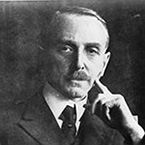
A giant of 20th century research pathology, Leo Loeb refined the technique of cell transplantation and was one of the first to succeed in the serial transplantation of tumors, a method that has contributed much to the knowledge of experimental neoplasms. In early studies, he showed the influence of heredity factors on the origin and incidence of certain cancers, particularly those in the mammary glands of mice. He discovered that hormonal factors in the environment acting upon tissues sensitized by heredity could bring about cancerous transformation, a principle that underlies cancer research today.
Dr. Loeb was born in Mayen, Germany, but when he was young moved to Switzerland, where he obtained a medical degree from the University of Zurich in 1897. He soon followed his older brother, the noted pathologist Jacques Loeb, to North America, where he worked at the University of Chicago, McGill University, and the University of Pennsylvania. He returned to the Midwest in 1910 to become research director at the Barnard Free Skin and Cancer Hospital in St. Louis. In 1915, he was named professor of comparative pathology at Washington University Medical School, where he remained until his retirement in 1937. He continued to develop techniques for sustained in vitro tissue culture and was a pioneer in studying possible viral causes of cancer, working to refute a widely held belief that cancer was contagious.
He served as secretary of the AACR from 1909 to 1910 and president in 1911. During his presidential term, he was an advocate for compiling better cancer statistics and instituted submission of abstracts for the AACR Annual Meeting. Dr. Loeb was a prolific writer; many of his publications were edited by his wife, Dr. Georgiana Sands Loeb. He was also the author of The Biological Basis of Individuality (1944), which moved beyond the study of disease to the psychological issues defining individuality in the social sphere.
Dr. Loeb was elected to the National Academy of Sciences in 1937, and in the years before his death in 1959 he prepared extensive autobiographical notes, which he left to the academy. He mentioned his regret that he could not name individually the students and research associates whose loyalty meant so much to him. To him, they represented “a precious part of my life.”